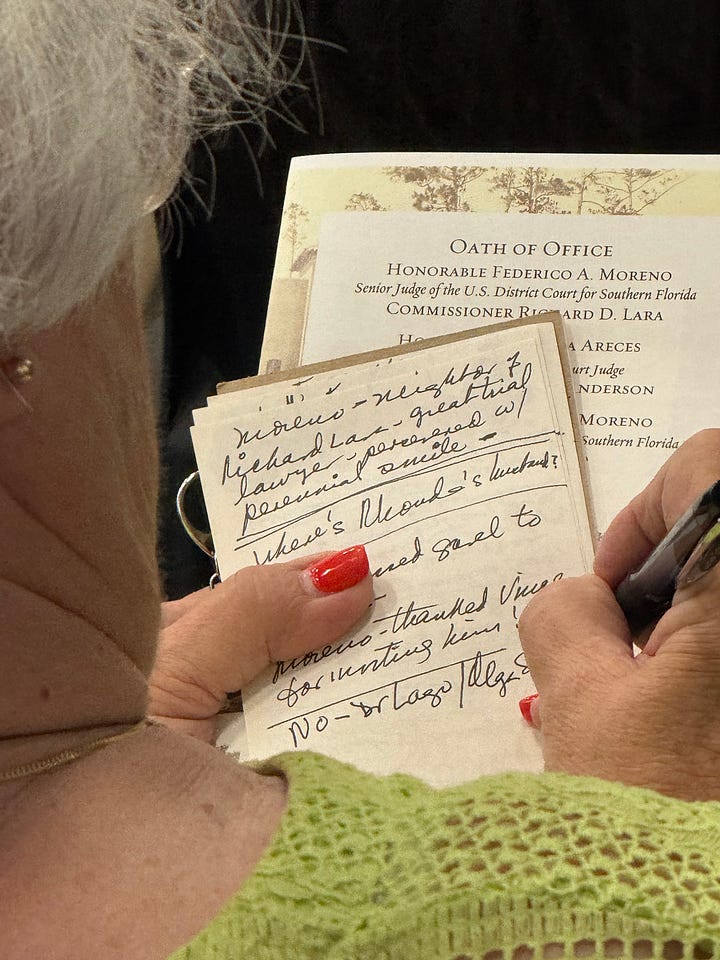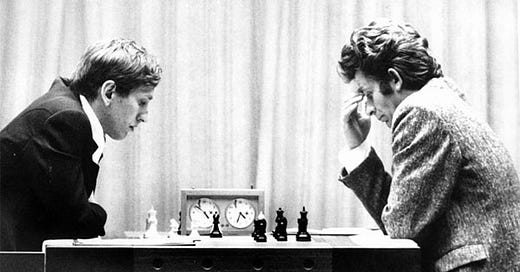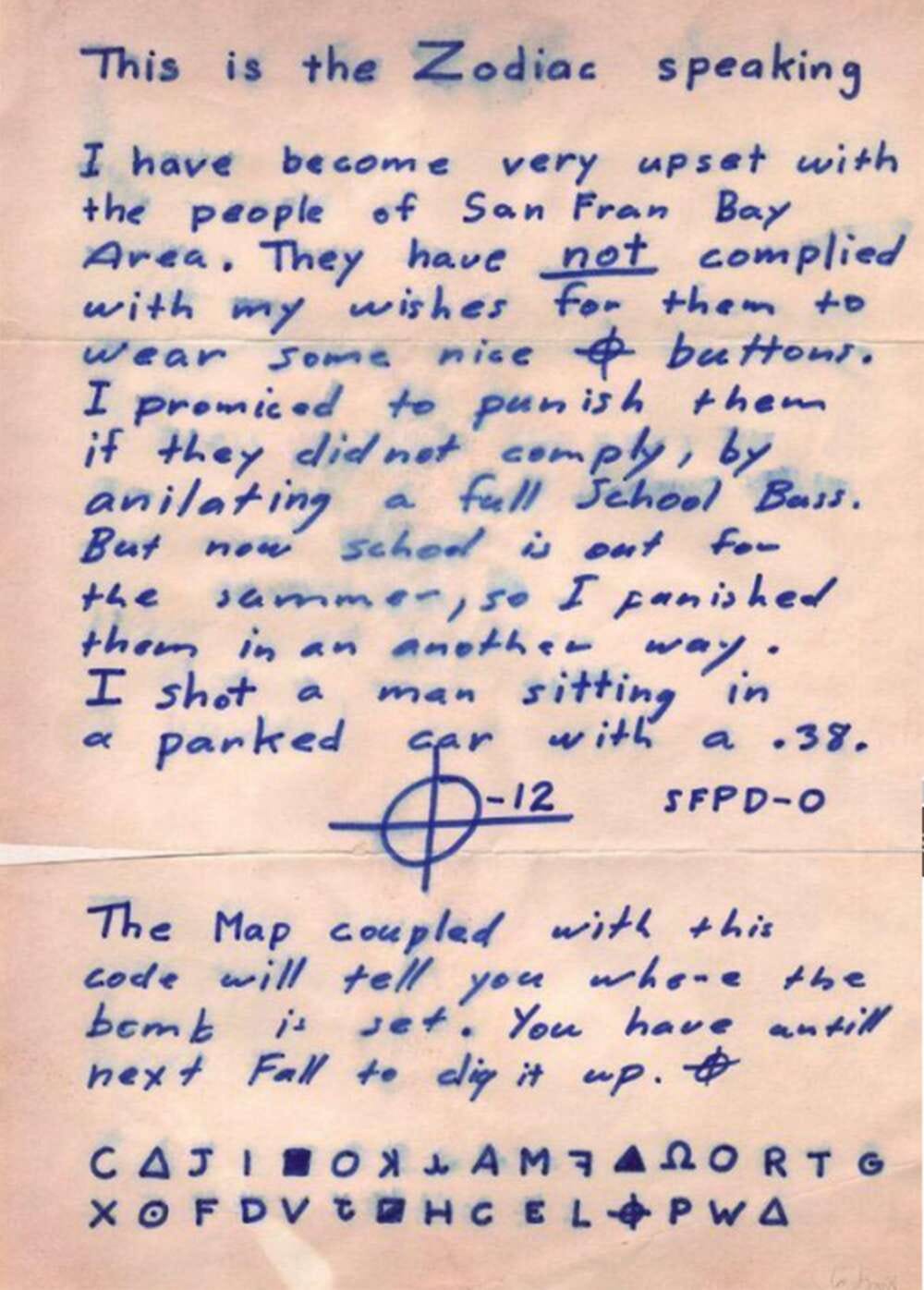In round six of the 1972 World Chess Championship, Bobby Fischer stunned the world by defeating reigning champion Boris Spassky in one of the most celebrated games in chess history. It was a virtually flawless showing from the American, a true positional masterpiece. Playing with the white pieces, Fischer methodically deprived Spassky of space and opportunity through extraordinary patience, precision, and prowess. The execution was so brilliant that Spassky himself rose from his chair upon resigning to honor Fischer with a standing ovation, and the game itself was so exquisite it would forever be remembered in the chess world as Fischer's "symphony of placid beauty."
But as stunning as the game was from a technical perspective, it was arguably even more remarkable for its context. Plagued by paranoia for much of his life, Fischer was very much the mad genius. He was also a lone wolf, a generational talent who, representing a nation largely apathetic to chess, would have to take on the world-dominant Soviet chess machine at the height of the Cold War virtually alone. Altogether, it was the perfect recipe for a mental breakdown, which is precisely what Fischer suffered before, during, and after the match. To not only win game six, but to do so via a tour de force that demonstrated a poise and equanimity almost antithetical to his nature (Fischer had forfeited game one by failing to even show up), was perhaps his greatest masterstroke. Spassky would never recover, and Fischer went on to win the match 12.5-8.5.
At the risk of being too heavy-handed with the parallel, I can't help but feel a similar appreciation for the May 6th commission meeting, the very first of the post-KFC era. Like Fischer’s game, it was neither splashy nor explosive but rather methodical and purposeful. It was the antithesis of everything that preceded it. Order replaced chaos, professionalism replaced petulance, and substantive legislation replaced hollow pandering. The entire meeting lasted approximately two hours—two hours in which more was accomplished than in the past two years:
KFC’s raises? Rescinded.
Municipal elections? Moved to November.
Public comment? Significantly reformed.
Inspector general? Finally moving forward.
City manager? Allowed to depart with his dignity (and résumé) intact.
And like Spassky, I doubt the Leftovers—Ariel and Dr. Castro (the latter conspicuously absent due to an allegedly conflicting surgical procedure)—will ever recover from this systematic dismantling. And by dismantling, I don't just mean the material reforms listed above.
True, both relied heavily on their public salaries as primary income, but even the original commissioner's salary was substantially more than the $0 chronically unemployed Ariel earned before his election, and Dr. Castro still has her permit-expediting business to fall back on. Like cockroaches after a nuclear war, they'll somehow survive.
Indeed, while November elections effectively eliminate the Leftovers' chances of reelection, their odds of winning an April contest weren't much better to begin with—both Dr. Castro and, surprisingly, Ariel were polling substantially lower than Kirk heading into last month's elections. From a purely strategic perspective, moving the elections to November is a lot like torpedoing the Titanic after it has already struck the iceberg.
And yes, Parjus' resignation means that beyond losing control of the commission, Ariel in particular will no longer enjoy de facto dominion over City Hall through a loyal and subservient manager.
But this was all fait accompli. It shouldn't surprise anyone that three candidates who explicitly campaigned and won on enacting these reforms would, get this, actually enact them. The May 6th legislation was merely the manifestation of a destiny written the moment the 3,936th vote was cast for Lara on April 22, 2025.
The real dismantling stemmed from the only significant unknown going into the first meeting: how the proceedings would look, sound, and feel. We know what Ariel was hoping for. He wanted taunting, gloating, boasting, and stridency. He wanted Lago pounding his fist on the dais, sermonizing endlessly about "elections having consequences" while turning the meeting into a Red Wedding-style massacre of everyone who'd crossed him. He wanted Anderson to dutifully sit, heel, and play dead before ultimately curling up in Lago's lap like an obedient puppy. And he wanted Lara to symbolically split the baby on every vote in a desperate attempt to prove he was truly his own man.
He was hoping for anything, just anything, that might validate the months of trash-talking and fear-mongering in which he and his allies had engaged. Hoping for just one hint of the parade of horribles they had promised would befall our city.
Instead, we got the smoothest, most efficient, and most fruitful commission meeting this city has seen in over two years. We got a mayor who was measured and dignified, not the deranged lunatic hellbent on vengeance we were promised. We got a vice mayor who was self-assured and assertive, not the lapdog they said we’d see. And we got a new commissioner who spoke with a clear voice and who demonstrated over the course of two hours more independence of thought, clarity, and originality than all of KFC could muster in two years.
There was also, just as importantly, what we didn't get. For starters, we were spared Dr. Castro, whose temporary absence from the dais offered a tantalizing preview of what could be—oh, how we have tasted the fruit of paradise! While freedom from her incessant eye-rolling, lip-smacking, and incoherent Miami-Girl rambling was addition by subtraction in itself, the most notable aspect of Dr. Castro's absence was how it affected Ariel.
Without his reliable human shield, Ariel was unusually subdued, his trademark combativeness replaced by an almost sheepish desire to avoid confrontation. It was the clearest evidence yet of something I've been arguing for two years: Dr. Castro is not just Ariel's puppet, she's his battering ram and cannon fodder. She delivers the scripted attacks that Ariel wants launched but doesn't dare carry out himself, allowing him to swoop in afterward and capitalize on the carnage while maintaining plausible deniability. It's a cynical but effective strategy: Dr. Castro hurls the mud, Lago or Anderson are forced to respond, and only then does Ariel engage, positioning himself as the more reasonable voice despite quietly orchestrating the entire exchange. Without his preferred proxy doing the dirty work, Ariel seemed almost lost, like a mob boss suddenly stranded in enemy territory without his muscle to hide behind.
Also conspicuously absent was Mrs. Cruzchev's usual fire and brimstone. Though clearly still seething with deep-rooted anger and resentment, she didn't quite unleash her typical viciousness, nor did she project that untouchable air to which we've all grown accustomed. She too seemed unusually subdued and less bellicose than usual, which came as a surprise to many who expected her to be fully on a war footing. Who can blame them, really, especially after Mrs. Cruzchev was caught at last month’s induction ceremony composing an actual hit list? Sorry, Gonzalo, but it looks like you’re up first:


Ok, so I may have added that last page. Anyway, unlike Ariel, Mrs. Cruzchev typically performs solo, so her newfound restraint can't be attributed to Dr. Castro's absence. More likely, she's simply feeling the unfamiliar pressure of rules and order once again. Without KFC controlling the dais, the mayor can finally restore decorum to meetings without being overruled (because heaven forbid Mrs. Cruzchev isn't granted unlimited time to pontificate on every agenda item, or Rip Holmes is prevented from sharing his YouTube videos about melting hurricanes and detecting space-lizards from the Andromeda galaxy). Turns out a little tug on the choke chain works wonders.
This atmosphere of measured competence, this display of orderly efficiency, is what stands to inflict the heaviest damage to Ariel and Dr. Castro. The reform train was barreling down the tracks and nothing was going to stop it. That the ALL coalition would push ahead with their agenda—the people's agenda—was never in doubt. The only questions were how they would go about it, what the dynamic would look like, and whether Lago would demand brutal and bloody vengeance. Turns out they would proceed thoughtfully and professionally (shocking, I know, that wresting control from three agents of chaos would result in less chaos), and Lago did not, after all, go full John Rambo. On that last point, I'll admit I wouldn't mind seeing a bit of retribution meted out here and there. I'd just prefer that it be less Rambo and more Count of Monte Cristo.
A final note on retribution. You can expect that concept to be stretched beyond recognition in the coming months. Any hint that the ALL coalition might amend or reverse KFC's meager legislative accomplishments (a collection of largely performative nonsense that wouldn't fill the back of a cocktail napkin) is apt to be denounced as "retribution." Never mind that there's precious little to amend or reverse, given that KFC spent their two-year monopoly over the commission enriching themselves and waging political warfare rather than actually governing. There will, of course, be one exception to this rule: should Ariel manage to sponsor a policy reversal first, said reversal will magically transform from "retribution" into "responsive governance."
But returning to the heart of the matter, if the ALL coalition can maintain the dynamic we saw on the 6th, it will effectively take the last remaining arrow out of Leftovers’ quiver. They lost on policy, they lost on procedure, and now their final hope that their opponents would prove as petty and vindictive as they portrayed them has evaporated. May 6th saw order replace chaos, dignity replace spite, and competence replaced theatrics. As such, the contrast between the new commission and the old one couldn’t be clearer or more damning. Rather than KFC's monotonous chorus of grievance, we saw three distinct voices working in purposeful harmony. What was once a discordant cacophony of pettiness and nastiness has transformed, at last, into our own symphony of placid beauty.
P.S. Note: isn't it curious how the Herald found the proposal by certain Miami officials to extend their commission and mayor's terms newsworthy while ignoring Lago's voluntary term reduction here? Both reforms involve aligning local elections with state and national ones, yet only one gets any coverage. I suppose the only election reforms worth reporting are those that provide the appropriate attack angle.







How do I get higher on Cruz’s list?
Is being #1 on Maria’s list a confirmation that we are doing something right and disruptive of their plans to turn Gables into a permanent home for a Banana Republic? If so, then I’m proud our collective efforts has dismantled the number of bananas-in-charge by one so far with 2 powerless bananas left